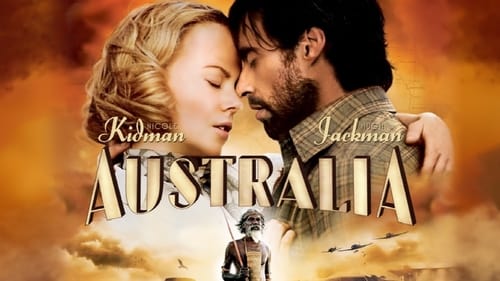
Camera Operator
Set in northern Australia before World War II, an English aristocrat who inherits a sprawling ranch reluctantly pacts with a stock-man in order to protect her new property from a takeover plot. As the pair drive 2,000 head of cattle over unforgiving landscape, they experience the bombing of Darwin by Japanese forces firsthand.

Cinematography
RODEO ROAD explores the unique cowboy culture of Australia's remote north west in the pursuit of the rodeo dream - eight seconds of bull riding glory. Each year cowboys from across the Kimberley load up their saddles, chaps and wranglers and go rough-riding. Some are born and bred in the saddle, while others are young ringers from over east who come to muster through the dry season. Come rodeo time they are chasing the dream, gripped by the rodeo fever of the wild north west.

Director of Photography
Jørn Utzon, acclaimed architect of the Sydney Opera House, tells the story of the design and construction of his masterpiece.

Cinematography
A 1997 documentary which demonstrates the way in which art is central to the lives of Aboriginal people in maintaining their culture, expressing their laws and history and their connection to the land. Explains the effect the misuse of their artwork for commerce has on their communities. Discusses the problems with western copyright law when applied to Aboriginal art and the Aboriginal concept of ownership. Also looks at the issue of authenticity of Aboriginal art.

Cinematography
On June 3rd 1992, six months after Eddie "Koiki" Mabo's tragic death, the High Court upheld his claim that Murray Islanders held native title to land in the Torres Strait. The legal fiction that Australia was empty when first occupied by white people had been laid to rest. Mabo-Life of an Island Man tells the private and public stories of a man so passionate about family and home that he fought an entire nation and its legal system. Though his greatest victory was won only after his death, it has forever ensured his place - on Murray Island and in Australian history.

Director of Photography
Philippines my Philippines (1989) is a feature length documentary about the situation in the Philippines two years after the notionally democratic Cory Aquino replaced the dictator Ferdinand Marcos in the ‘People Power’ revolution of 1986. Touching on the influence and interests of the United States and Australia, it examines the social context and dimensions of the violent conflict between government and big business on one hand and the rural and urban poor (led by the Communist Party of the Philippines and its New People Army) on the other.

Sound
During the height of the Cold War, the Waterside Workers' Federation Film Unit produced eleven (11) films for several trade unions on political and industrial issues. Independent film-makers worked with them to develop critical dialogue from one generation of concerned film-makers onto another. FILM-WORK looks at sequences from 4 of these films and interviews some of their makers, raising a diversity of issues pertinent to current debates in film, history and politics. The 4 films that are looked at are PENSIONS FOR VETERANS (1953, NSW Branch, WWF), THE HUNGRY MILES (1954, WWF), NOVEMBER VICTORY (1955, WWF), and HEWERS OF COAL (1953, Miners Federation). PENSIONS FOR VETERANS covers the issue of the need for pensions to be given to workers who have worked on the waterfront all their life. THE HUNGRY MILES shows the strength of the workers, the union and its democracy. HEWERS OF COAL is about the coal miners and their struggle to get better working conditions and pensions.

Editor
During the height of the Cold War, the Waterside Workers' Federation Film Unit produced eleven (11) films for several trade unions on political and industrial issues. Independent film-makers worked with them to develop critical dialogue from one generation of concerned film-makers onto another. FILM-WORK looks at sequences from 4 of these films and interviews some of their makers, raising a diversity of issues pertinent to current debates in film, history and politics. The 4 films that are looked at are PENSIONS FOR VETERANS (1953, NSW Branch, WWF), THE HUNGRY MILES (1954, WWF), NOVEMBER VICTORY (1955, WWF), and HEWERS OF COAL (1953, Miners Federation). PENSIONS FOR VETERANS covers the issue of the need for pensions to be given to workers who have worked on the waterfront all their life. THE HUNGRY MILES shows the strength of the workers, the union and its democracy. HEWERS OF COAL is about the coal miners and their struggle to get better working conditions and pensions.

Director of Photography
A deliciously compelling look under the lei, and why the Hula Girl is one of the most potent and sexually alluring images in popular culture today.







